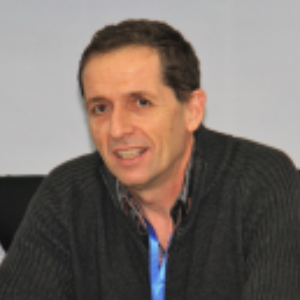Title : Importance of fast-growing Australian Acacia in Vietnam: real opportunities for developing/formulating effective bio-inoculants for a production of healthy and vigorous seedlings
Abstract:
International funding agencies had put a lot of effort for financially supporting projects aiming the production of high-performing hybrids of Australian Acacias in Vietnam. The main consequence is the significant surface of forests covered by these hybrids across the country (mainly in Northern and Central Vietnam). These hybrids are widely used by the local populations because businesses related to this production were developed with significant incomes for the people dealing with it. Meanwhile, all these plantations contribute to the effort of soil restoration as these trees can symbiotically fix atmospheric nitrogen with a soil bacteria called rhizobia and released a part of it to the soil. But the current production of seedlings is not satisfying. Among all the difficulties we listed, we noticed that many private nurseries used unknown or mixed hybrid material; sometime seedlings are produced with seeds collected on hybrids; and instead of promoting effective bio-inoculants (such as rhizobia and mycorrhiza), the nurseries use massive amounts of chemical inputs killing all the beneficial living organisms contained in the soil. The main consequence of this is the low rate of survival of the seedlings after plantation in the field and the limited growth of the trees because there cannot take advantage of the nutrients supplied by the lacking symbiotic partners. The presentation is about describing the current situation and after what needs to be done for sustaining an effective production of vigorous and healthy seedlings of Australian Acacia including the selected hybrids. In addition of using a well-known plant material, we will make a big focus on the formulation and the development of effective bio-inoculants working for Acacia mangium only and for hybrids Acacia mangium x Acacia auriculiformis only as the literature shows that their symbiotic requirements are different. This is a real innovation in Vietnam where decades of projects were funded aiming to introduce new Acacia materials and hybrids in the country, to run clonal selection tests and to set up units in charge of producing by tissue culture micropropagation plantlets of the selected plant material. All these activities were undertaken without paying attention of the symbiotic partners of these Acacia trees. Currently, we pay the price of this absence and we consider it is time to move on with such bio-inoculant’s approach with the overall objective to sustain these plantations in Vietnam and then to improve the livelihoods of small-holders financially depending of the wood production.
Audience Take Away:
- Will describe the current situation about the production of Australian Acacia seedlings in Vietnam with a focus on the Phu Tho Province which provides seedlings for the whole Northern and Central Vietnam.
- Will explain why it makes sense to pay attention to the symbiotic partners of these Australian Acacia if we want to sustain their growth.
- Will emphasize the methodology for formulating specific and effective bio-inoculants with beneficial microorganisms capable to enhance the Acacia trees growth.
- May be the opportunity for developing new partnerships with participants sharing the same interest on such topic


